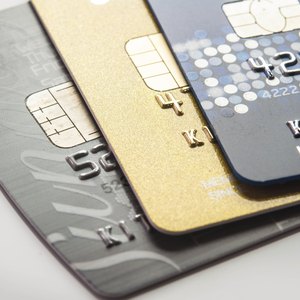
The First Investigator
The first investigator of credit card fraud is you. Regular, frequent surveillance of your accounts can highlight activity you don't recognize before it becomes apparent to creditors and vendors. As your own sleuth you can take the first action to begin tracking the fraudster and stop future abuse of your identity by calling your credit card company's 24-hour hot line. This also limits your liability to $50 after that point, but speed is critical. Often all the fraudulent transactions are completed before the identity theft is discovered and reported.
Report and Cooperate
Theft--up close and personal--like purse-snatching, pick-pocketing, break-in or hold-up, can leave you with one advantage: immediacy. Reporting to police can immediately connect you to a professional fraud investigator. You will sign a statement of theft, under oath, to immediately receive a case number and establish liability limits. Banks and credit card companies have created quick credit cut-off tactics to foil all but the speediest criminals
Professional Investigators
Credit card fraud is almost 20 times as common online as at a bricks-and-mortar vendor. Online purchases, called "card not present" (CNP), use a card number entered without physically showing the card or ID. Most online (and in-store) transactions immediately access a worldwide database to spot non-typical buying patterns. If a purchase is much bigger or very different from your typical transactions, it is blocked and you are notified.
Tracking
Professional credit fraud investigators are specially trained for "electronic backtracking" of electronic transaction trails through financial intermediaries and back to vendors. They are experts in sophisticated sciences like forensic accounting, information technology and financial security systems.
Danger: Clean Record
Investigators sometimes find a victim's stolen credit card record clean--no unauthorized transactions. But new credit may have been issued using the old card for ID only, not purchases. This enables new CNP transactions in the victim's name without triggering alerts or payment-stops on the old number. Police, banks and credit card investigators can stop these secondary frauds with their sophisticated tracking methods.
Government Investigators
The U.S. Secret Service and the Federal Trade Commission (FTC) oversee and provide legal support for monetary and personal fraud investigations. But they often leave matters to--but back up--state and local authorities, depending on the size and scope of the crime. For instance, FTC usually investigates only cases over $2,000. Standard operations include taking criminal complaints, connecting victims with relevant consumer protection agencies and interfacing with necessary law enforcement offices.
Personal account surveillance and fraud investigation are powerful tools, but many fraudsters are staying ahead of the enforcers: losses still amount to almost $50 billion a year.
References
Writer Bio
Walt Pickut has published peer-reviewed medical research since 1971. Pickut teaches presentational speaking and holds board registries in respiratory care and sleep technology. He is a member of the Society of Professional Journalists and the American Society of Business Publication Editors and is editor for "The Jamestown Gazette." Pickut holds bachelor's degrees in biology and communication, and master's degrees in physiology and mass communication.

